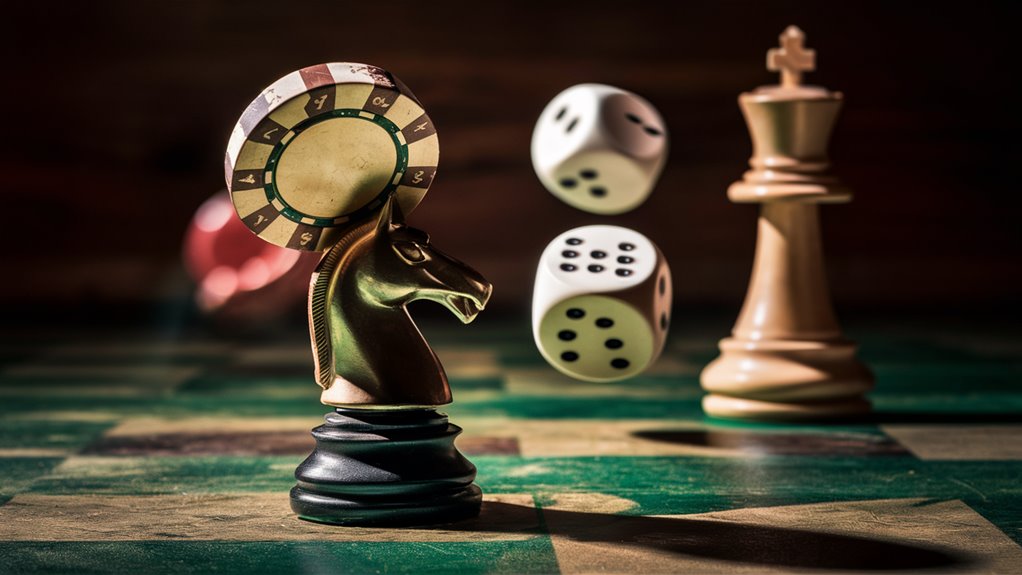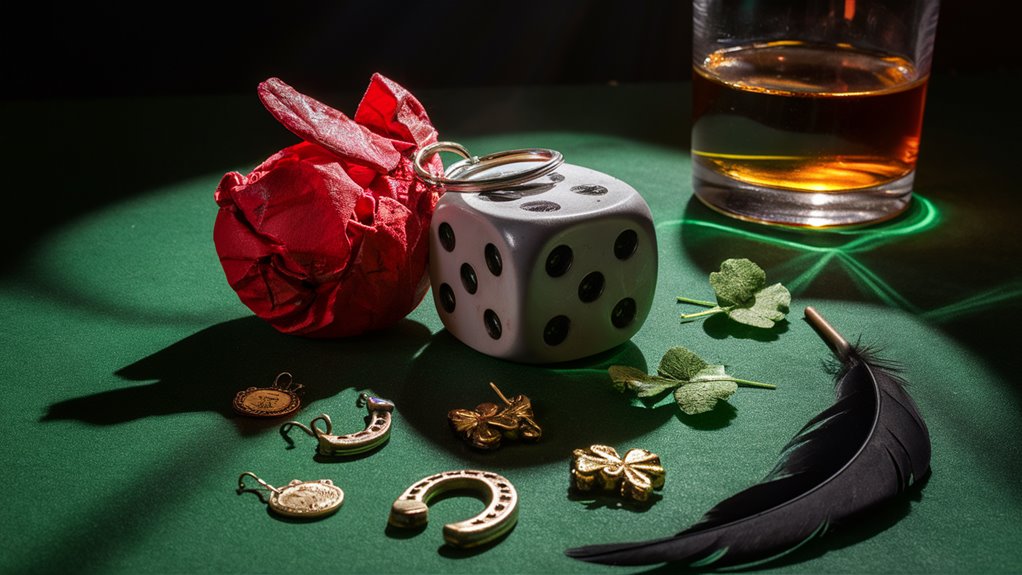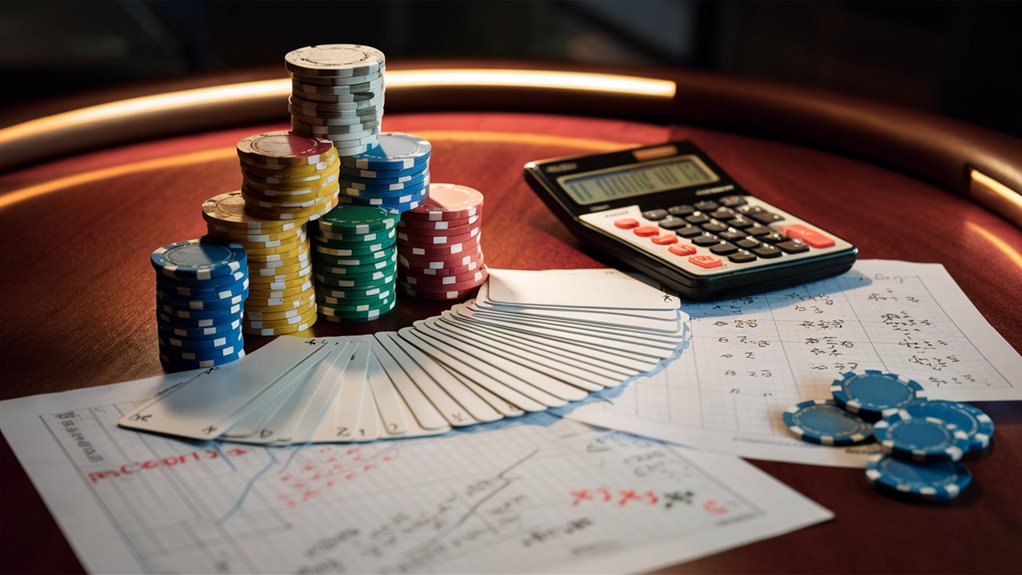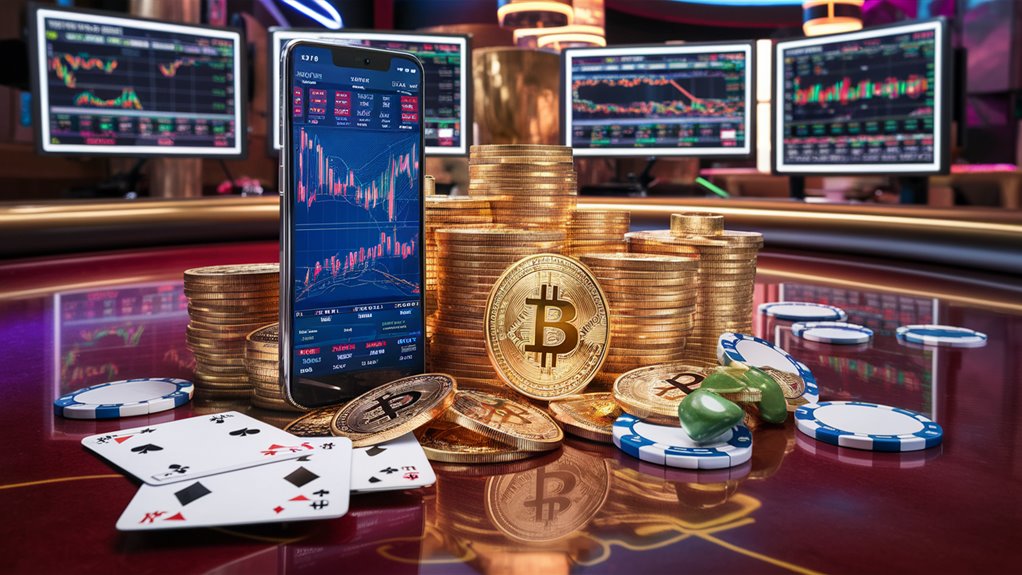Luck and Betting: Key Points and Checks

Know the Betting Mind and The Numbers That Lead It
The link from betting acts to noted luck flows from sharp thought and math rules, not ghost acts. Head checks show folks recall wins three times more than losses, pushing them to feel they can shift luck.
How Belief and Lucky Moves Turn Betting Acts
Cultural roads and odd acts push how much folks bet, making it go up by 47%. Yet, these acts come with 23% more lost each game time, showing a gap between felt and real score.
Casinos and No Big Plan
Top betting spots use high Random Number Making (RNG) tech based on:
- Easy rules of physics
- Air sound levels
- Strong math ways
This tech keeps fair play no matter your past, making sure each round is free of fixed plans.
Game Tries vs. Real Math
Big betting tries may help in skill games, but key math of odds runs all game results. How often one wins hangs on:
- Chance math
- Game pace
- House edge stats
- How you handle your cash
Seeing these parts show game scores line up with math, not luck 먹튀검증업체 순위
The Mind Games of Big Wins
Studies find bettors’ big win dreams rest on tilted thought and bad plan seeing.
Our mind’s need to find a way, even in pure luck spots, builds strong but wrong views of big wins.
How the Mind Twists and Holds Memories
Hopes twist how players recall their game runs.
Folks keep good win memories over bad ones, making a fake feel of always winning days. This tilted memory meets the bettor’s wrong thought – the untrue take that past results twist random future events The Impact of COVID-19
Brain Pleasure Points
How the brain feels in a win spills out much dopamine, making a strong happy drive in the mind.
This brain rush makes a deep, in-game feeling, leading players to think they control luck more than they do. Studies show this false hold often leads to:
- Going too deep
- High bet sums
- More money lost
How the Mind Sees Luck
The pull of big win chains comes from many brain parts working together:
- A way to see order
- A tilt in memory
- Brain joy points
- A false feeling of hold
These parts build a strong, yet not fact-based, trust in long win chains, seeing these mind plays can help know why chains feel real without facts.
The Role of Random Numbers

Making random numbers (RNG) is key in today’s digital betting setups.
These top-tech ways use hard math to make number lines that no one can guess which run on every turn, mix, and roll in online fun spots.
Types of Making Random Numbers
true RNG machines use earth bits like air noise and atoms breaking down to make pure luck.
On the other side, nearly true RNG machines use high math bits and start points to make stats-like random turns.
How They Work
Casino RNG tools run under high needs, making billions of chance numbers by the second.
These setups link made numbers to known game ends, like:
- Card spots
- Slot mixes
- Marked dice outcomes
- Spin wheel stops
Ways to Test and Keep Check
Stat tests through sharp testing keep RNG tools honest:
- Right chance sets
- Matches with chi-square tests
- Fixed random numbers
- True actions
Today’s RNG tech has many safety parts:
- Many code secrets
- Checks as it runs tools
- Top-level random number makers
- Strong no-change systems
These tech guards make sure true luck in all betting results, safe from guessing or bad acts, no matter how sharp the tech used.
Views on Luck in Betting
Thoughts on luck and rich times still form how folks bet around the world, though there’s clear proof of game random results.
These deep betting roots in culture show big in many groups, changing everything from how we bet to casino styles.
How to Bet in Asia and Number Guides
Old Asian betting beliefs focus on set calls.
The number 8 is big in betting ways, as it sounds like the word for “more”. This cultural link changes betting moves and sets casino styles all over Asia, mostly in top game spots like Macau.
Betting Ways in The Med and West
Med Betting ways often bring in gods and set moves.
West betting thoughts, like those linked to black cats and horseshoes, are in Europe and America’s game spots.
These signs of luck help players pick in unsure times.
How It Changes Betting Acts and Casino Shapes
Facts That Show It
Work hints that folks with deep cultural bet thoughts are 47% more likely to jump into big luck bet acts.
These built-in thoughts act as mind frames for quick picks during play times.


